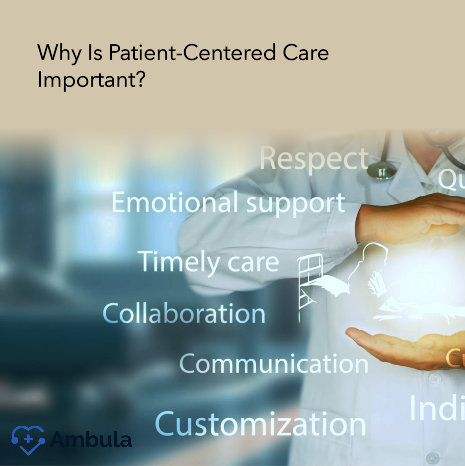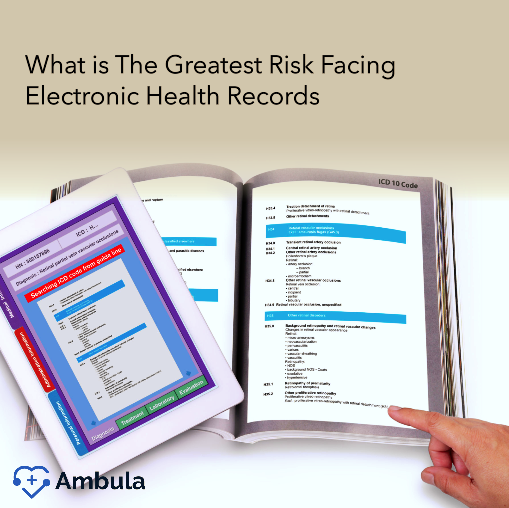
Patient-centered care (PCC), a concept at the very heart of healthcare delivery, is the approach where you, as a healthcare provider, align medical attention with your patient’s unique needs and expectations. With PCC, your focus shifts towards respecting and responding to individual patient preferences, needs, and values, ensuring they guide all clinical decisions. This move from a more physician-centric approach to one that places the patient in the driving seat has had far-reaching impacts on healthcare delivery.
History of Patient-Centered Care
To truly appreciate the value and potential of Patient-Centered Care (PCC), you should understand its origins and evolution. It’s interesting how healthcare delivery has transformed from a more paternalistic model to the inclusive, patient-centric model we see today.
In the beginning, medical practices were dominated by a physician-centric approach. Here, healthcare providers had the ultimate decision-making authority, often leaving the patient as a passive care recipient. This model of care often didn’t consider the patient’s unique experiences, preferences, or insights.
However, the shortcomings of this physician-centric approach began to surface as patients demanded better-shared decision-making and personalized care. This paved the way for introducing the concept of Patient-Centered Care in the 1980s by the Picker Institute and Harvard Medical School. They highlighted eight critical areas encompassing PCC, including respect for patient preferences, emotional support, and patient education.
The World Health Organization also endorsed PCC as the foundation of quality healthcare in the 21st century. In fact, according to a Health Affairs study, countries that adopted patient-centered care reported improved health outcomes, increased patient satisfaction, and reduced healthcare costs.
Even legislation started reflecting this shift. Take the Affordable Care Act in the U.S., for example, and it emphasized patient value and experience as a benchmark for healthcare delivery.
In recent years, PCC has been recognized more than ever as not just a philosophical approach but a practical, effective care model that yields results. It pushes the frontier of how you, as a healthcare professional, can deliver empathetic, effective care tailored to your patient’s unique needs and preferences – truly bringing them into the heart of the treatment.
This historic journey of PCC sets the stage for a deeper understanding of its importance and implications in a modern healthcare setting, and it really underpins why you should marry this approach with your clinical expertise.
Importance of Patient-Centered Care: Overall Picture
Patient-Centered Care (PCC) is making waves in healthcare for various reasons. It’s a strategy that shifts the traditional care approach by placing the patient’s unique needs and values at the core. So, why is the spotlight on PCC right now?
Firstly, PCC boosts patient satisfaction. The more involved and heard patients feel, the higher satisfaction they report from healthcare services. A survey from the Commonwealth Fund found that those in highly patient-centered practices were likely to rate their care as excellent or very good, highlighting the positive impact of PCC on patient perception.
Secondly, PCC has been shown to improve healthcare outcomes. The shift towards focusing on individual patient needs and values has led to better health outcomes and overall patient well-being. A research review by BMJ Open indicated that PCC can significantly improve physical, emotional, and mental health. It’s not rocket science – when patients are actively engaged in their care, they’re more likely to follow through with treatments and preventive measures.
Thirdly, PCC has a direct impact on healthcare efficiencies. How, you ask? By addressing patients’ concerns and aligning treatments with their preferences, PCC can reduce unnecessary hospital admissions, lower healthcare costs, and enhance resource allocation.
Lastly, PCC encourages shared decision-making, reinforcing the collaboration between you and your patients, enabling them to take charge of their health and make informed decisions. This improves patient compliance, builds trust, and strengthens the doctor-patient relationship.
Enhancing Health Outcomes with Patient-Centered Care
The impact of Patient-Centered Care (PCC) on health outcomes is a topic worth examining in depth. It fosters a more collaborative relationship between you, the healthcare provider, and your patients, and it most importantly enhances overall health outcomes.
The profound benefit of PCC on health outcomes is rooted in the increased engagement of patients. When patients feel seen, heard, and involved in their care, they are more likely to adhere to treatment plans and experience better health outcomes. Isn’t it amazing how simple empathy and engagement can become a lifeline for patients?
Scientific studies also back this up. A systematic review in the Annals of Family Medicine corroborated that PCC improves patients’ health status, especially those with chronic diseases. That means the more you align and tailor treatments to individual patients, the better their health outcomes.
Another study by the Journal of the American Board of Family Medicine revealed that PCC leads to fewer hospitalizations and emergency department visits, further solidifying its positive impact on patients’ health outcomes.
The benefits of PCC extend beyond physical health as well; it aids in improving mental comfort. For instance, a Journal of Clinical Oncology study found that cancer patients involved in highly patient-centered consultations reported reduced anxiety and distress.
Equally important is the impact of PCC on preventive care. As the saying goes, prevention is better than cure. When patients are involved and educated about their health, they will likely be more diligent with preventive measures, promoting overall wellness.
Role of Patient-Centered Care in Decision Making
Patient-centered care (PCC) inherently shifts the decision-making process, empowering patients as active contributors to their healthcare. It’s not a one-system-fits-all model; it depends on shared decision-making, adapting to each patient’s unique experiences and values.
Studies show that shared decision-making, a chief aspect of PCC, improves health outcomes and patient satisfaction. With this method, patients clearly comprehend their health situation, treatment options, possible results, and risks.
But it’s not just about providing information. As a healthcare provider, you guide and educate your patients. This garners patient compliance; when they fully understand their medicinal program, adherence tends to be higher.
Incorporating PCC can foster strong partnerships with your patients, paving the way for efficient communication and improved outcomes. Your patients don’t just feel cared for; they become an integral part of their healthcare journey.
The future of Patient-Centered Care
The future of Patient-Centered Care (PCC) appears promising, given its profound impact on healthcare outcomes and patient satisfaction. A shift towards PCC signifies a move towards a more equitable, personalized, and humanistic approach to healthcare.
It’s becoming evident with technology advancements, such as big data, artificial intelligence, and blockchain, PCC will evolve further, aiding in the transition from simply treating the ill to maintaining well-being.
In addition, advancements in genomics and precision medicine will play significant roles in shaping the future of PCC. Genomics can provide valuable information regarding individual genetic susceptibilities, which can form the basis of personalized health strategies.
Telehealth is another game-changer, bringing healthcare into patients’ homes and morphing PCC into a more convenient, patient-friendly model. According to a FAIR Health report, telehealth claims skyrocketed by 2,938% from November 2019 to November 2020, underscoring how much it’s being incorporated into healthcare systems.
Moreover, the integration of patient-generated health data through wearable technologies and mobile health apps will allow providers to get real-time updates on patients’ health statuses, creating a patient care environment that’s more proactive than reactive.
The application of PCC is far from a minor adjustment; it is a profound shift, creating a ripple effect on many facets of healthcare. For you as healthcare providers, PCC signifies a strategic move that enhances patient care and propels the healthcare industry into its envisioned future.
EHRs and Patient-Centered Care: A Complex Relationship
Electronic health records (EHRs) and patient-centered care (PCC) are two pillars of modern healthcare, but their relationship is complex and nuanced. While EHRs hold immense potential to empower patients and streamline care, they can also present challenges that hinder a truly patient-centered approach.
On the positive side, EHRs offer several advantages for PCC:
- Improved communication: They can facilitate patient-provider communication by providing a shared platform for information exchange, including medical history, test results, and care plans.
- Informed decision-making: Patients can access their records, empowering them to participate more actively in treatment decisions based on their individual needs and preferences.
- Care coordination: EHRs can enhance care coordination across different providers, ensuring a more holistic approach to patient well-being.
- Remote monitoring: With integrated telehealth features, EHRs can enable remote monitoring of chronic conditions, promoting patient self-management and timely intervention.
However, challenges also exist:
- Data overload: Clinicians face information overload within EHRs, potentially leading to less time for meaningful patient interaction and shared decision-making.
- Usability hurdles: Complex EHR interfaces can be difficult for patients to navigate, hindering their engagement and understanding of their health information.
- Privacy concerns: Data security and privacy remain significant concerns, which can create trust barriers between patients and providers.
- Standardization issues: Incompatibility between different EHR systems can hamper seamless information exchange, impacting care continuity.
Conclusion
In PCC, the individual’s specific health needs and desired health outcomes are the driving force behind all health care decisions and quality measurements. Patients are seen as fully integrated partners in their healthcare journey rather than merely passive recipients of care.
Patient-centered care (PCC) significantly enriches healthcare delivery. This approach enhances patient outcomes and satisfaction and effectively manages costs. As technology and healthcare evolve synergistically, PCC affirms its pivotal role. As healthcare providers, embracing this strategy can elevate the quality of care you deliver, meeting not just the clinical needs but also your patients’ unique values and preferences.




